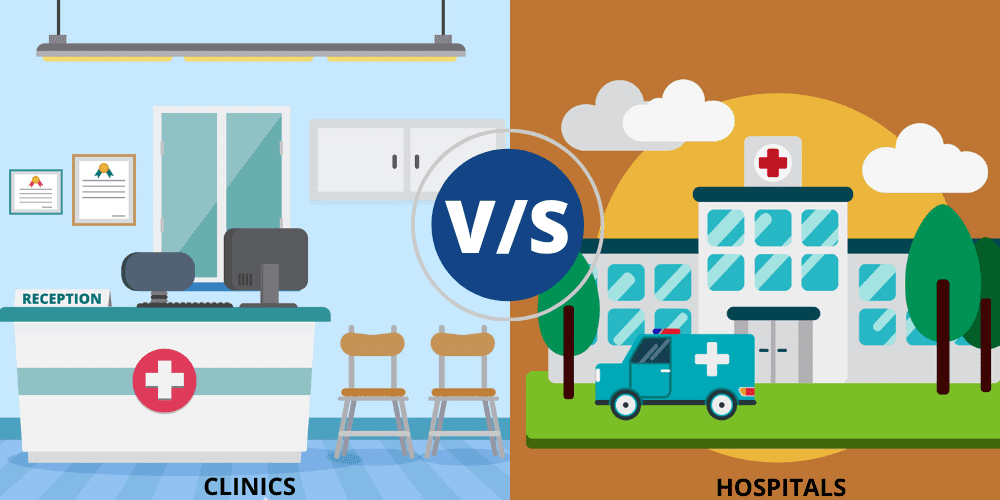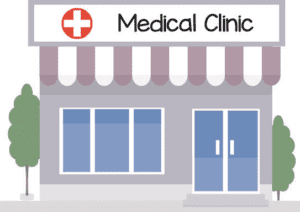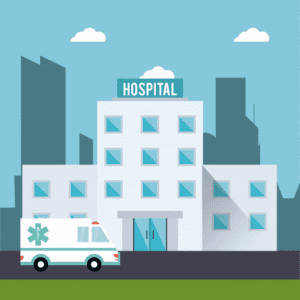The growth in demand for health care and a shortage of primary care providers has opened abundant opportunities for allied healthcare professionals. According to the Bureau of Labor Statistics, there has been a stable increase in healthcare positions over the last few years, and the healthcare jobs are predicted to escalate 20 to 30 percent over the next ten years. Both clinics and hospitals provide very different career paths. One decision that can have a substantial impact on your career is to decide where to work and deciding this can be a difficult choice. We cannot make this decision for you but surely give you insights on differences between the two.
Clinic Vs Hospital: Differences
Hospitals have a bigger setting compared to Clinics and it includes a wider range of departments with more opportunities for career growth whereas Clinics provide a more personalized work environment. Clinics are almost exclusively for-profit, corporately structured businesses. On the other hand, Hospitals are either for-profit, non-profit, or government owned.
Clinics and hospitals each have their own advantages and disadvantages. Let’s have a brief understanding for both.
Clinics: Advantages vs Disadvantages
Work schedules for nurses at clinics are more standard and routine. In many facilities, weekend and holiday work isn’t required. There may be some variation depending on the clinic or role, but generally, it provides a more traditional work schedule. It often establishes a lasting relationship with patients. Many patients report that clinics have a more “family-like” feel than their hospital counterparts. One of the major disadvantage is the lower pay compared to hospitals but there is always a scope of negotiation. Paperwork is more tedious in Clinics compared to Hospitals. At times, the traditional routine becomes no more challenging and boring.
Hospitals: Advantages vs Disadvantages
Hospitals differ from private practices in numerous ways. The increased patient flow and varying departments’ results in a completely different work environment. Hospitals have numerous staff to handle administrative work as well as day-to-day operations. Allied health professions are often offered higher base salaries. Pay is not only higher but also guaranteed which leads to stability. There are opportunities for constant growth due to the number of positions in a standard hospital. Overtime is often available.
Hospitals usually have flexible schedules with irregular hours, which could be a pro or a con depending on personal preference. There are also weekend and holiday hours required, sometimes at a short notice. Possibly exposed to difficult situations such as severe illness and death which leads to depressing situations.
Understanding the benefits of working in various settings can help you decide which option is best for you. If this does not clear your mind, you should try to comprehend which setting makes you more comfortable working and how much is it going to impact your lifestyle in the long run.
Currently, one in every seven persons in the U.S. is 65 or older and just under 40 percent live with four or more chronic conditions. There is a critical and growing need for allied health professions.
Conclusion:
Both clinics and hospitals are good options for medical students. If you want a personalized work environment then choose clinics and if you want more opportunities, a challenging work environment then hospitals will be a great choice. For working on these both levels, you must have trained in the professional allied healthcare school like AIHT education.






